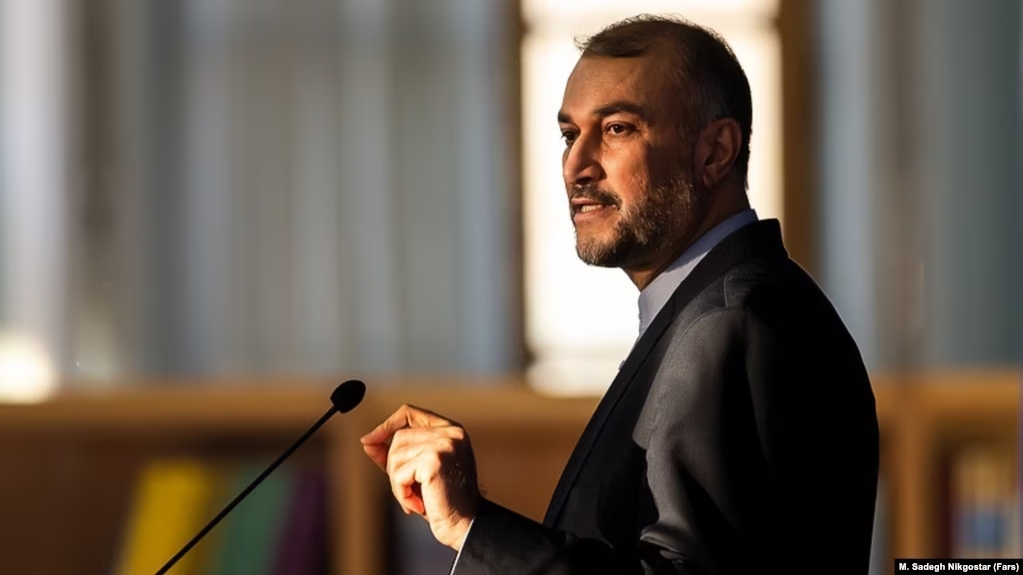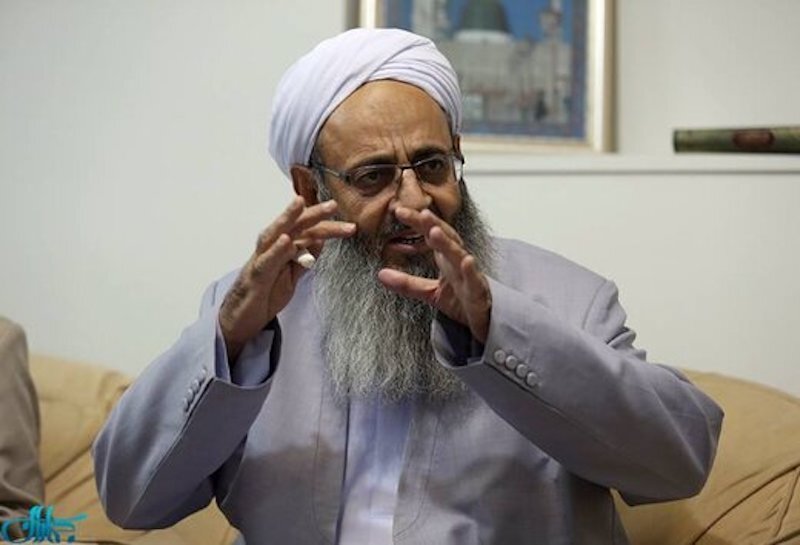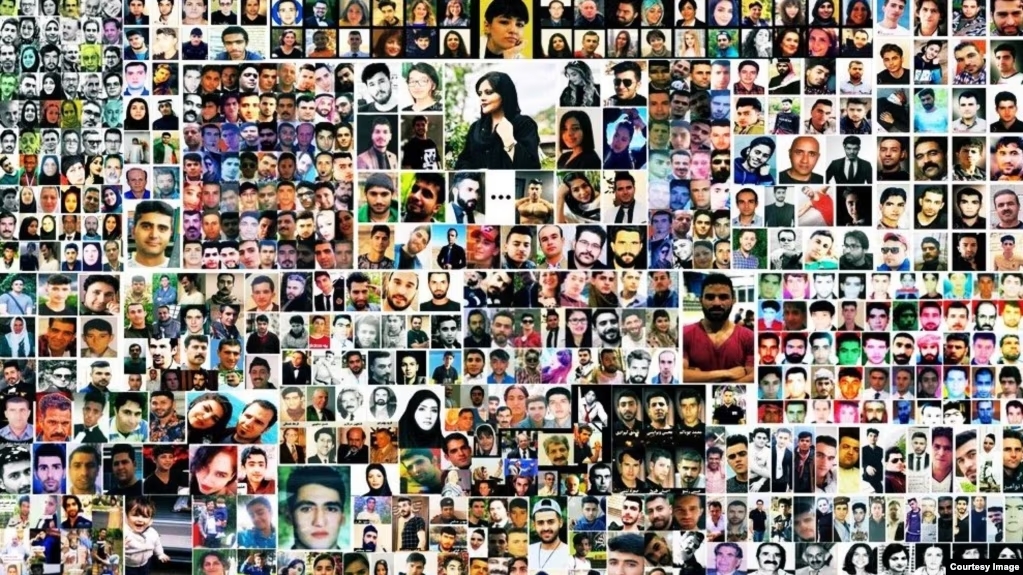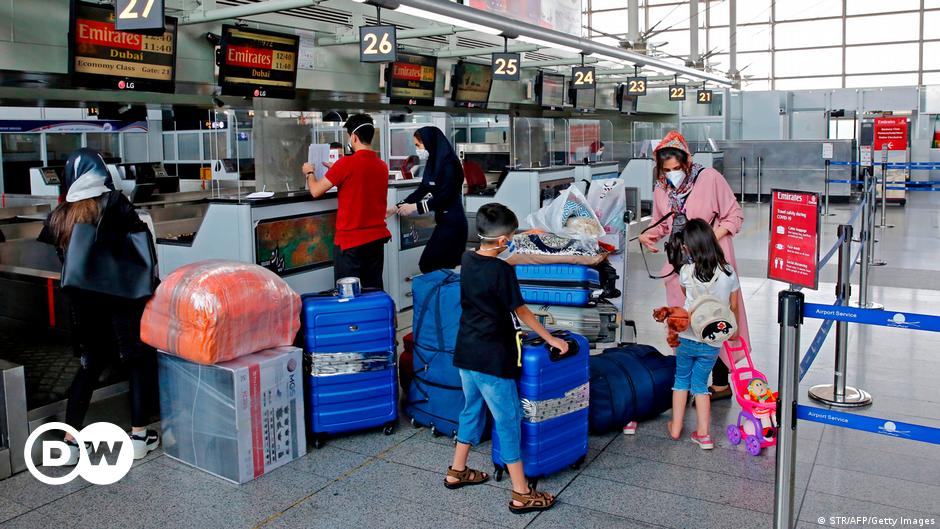
Harsh Reaction to the European Parliament’s Ratification Is Futile
The editorial of Setareh Sobh focuses on the ratification by the European Parliament for designating Iran’s Revolutionary Guards (IRGC) as a terrorist group, suggesting that Iranian officials and authorities should not react too strongly to this ratification and must observe the rules of diplomacy and diplomatic language.
The European Parliament’s ratification to designate the IRGC as a terrorist group has not been passed by European Council yet. The Council of leaders of the EU countries is the highest authority and before that, the European Commission consisting of the EU countries’ foreign ministers will review the European Parliament’s ratification.
The European Parliament has voted against Iran. Its ratification is more of a warning and another opportunity for clearing up misunderstandings and resolving issues with Iran.
The EU insists that European public opinion, as represented by the members of its Parliament, is not favorable toward the policies of the Iranian republic. This warning, of course, is not just for propaganda purposes as it might have practical aspects too – just as the United States, which designated the IRGC as a terrorist group before Europe, first announced its decision and then implemented it.
On the other hand, within Iran, we are witnessing harsh language used by “hardliners” in response to the ratification. Iranian policymakers should act reasonably and must not adopt this harsh language and reaction as a basis for any moves in the country’s foreign policy.
Using harsh language and reacting angrily means ignoring the danger that is threatening the country.
Iran should not be after getting engaged in conflicts on the international level. Perhaps, the West intends to take harsh positions against Iran in the future, but Western officials are now very careful about the language they use so that they can ensure their countries’ interests. That is why they are so careful in using the language of diplomacy.
The problem is that from the beginning of the nuclear case, Iran violated the NPT regulations, and its file was sent to the UN Security Council where Iran was condemned by the council six times.
Perhaps, some “hardliner” groups in Iran think the country’s isolation will be to their own advantage, hoping that they can turn Iran to a county like North Korea. But that is a miscalculation.
If the borders of North Korea would open, North Koreans could express their views and dissatisfaction openly. Then, perhaps, those who are after isolating Iran in the world could see how miserable life in North Korea is.
The Crisis of Drought
The editorial of Mamlekat focuses on the huge issue of the water crisis in Iran and how Iranian officials not only do not take any steps to resolve it, but they themselves are part and parcel of the problem.
This year, one can say that the sky has turned against Iran: little precipitation last year has caused drought and a shortage of food for Iran.
In the meantime, Iranian officials are not taking any measures in this regard which has resulted in the crisis of drought. When NASA warned that in the next two decades, southern and central Iran will no longer be habitable, Iranian officials and people should have taken this warning seriously.
The protests of Iranian farmers, popular demonstrations in Khuzestan Province and tribal conflicts in Sistan and Balochistan Province presage a bleak future for Iran.
The inability of the previous government and, to some extent, the current one in resolving the common problem of automakers shows the lack of resolution which also impacts the issue of desalination of sea water in the south and transporting it to the central regions of the country.
If the government cannot resolve the issue of automakers – which seems to be intentional – then it will not be able to confront the water crisis.
There are many questions in people’s minds: when there are different documents indicating that the issue facing automakers has been deliberately created, how come the Iranian judiciary is not getting involved in it after 10 years? How come the former and current ministers have not tried to resolve this issue? When officials are accused of creating problems for people, then how can they be expected to implement the huge project of desalination of sea water and transporting it to the central regions of the country?
Then Why Are Some People Receiving Astronomical Salaries?
The editorial of Mardomsalari asks why Iranian officials and lawmakers are paid large salaries if they are not doing their jobs properly.
Recently, the head of Tehran’s City Council said, “People should take care of themselves so that they are not hurt in this cold weather.” Today, the legislative and executive branches in Iran are completely run by “hardliners” like the head of Tehran’s City Council. The lawmakers consider themselves as “revolutionary” and members of Ebrahim Raisi’s government too have called themselves “jihadis.”
They entered the elections with big slogans regarding economic, social, cultural and political issues and won without having any rivals as the other candidates were disqualified by the Guardian Council.
Now it has been three years since the lawmakers took office and 15 months after Raisi’s government has started its work. A quick look at the situation shows that the promises that were made have not been fulfilled.
Despite the full control of the “hardliners” over the country, living standards are getting worse, people’s tables are shrinking, the country’s foreign policy is stalled, the government-people gap is further deepening, prices are skyrocketing, the country is shut down due to cold weather, and so on.
Tehran’s City Council is controlled by the “hardliners,” while the capital’s mayor – who once ran for becoming the president – used to consider himself the savior of the country and the herald of welfare, peace and honor for the entire nation. And now the head of the capital’s city council shamelessly tells people to take care of themselves as there is nothing they can do!
Now the question is: what are these people doing in the government, the Parliament, and the Tehran City Council? Why are they paid astronomical salaries for these positions, while they are doing nothing?
What is surprising is that Iranian President Ebrahim Raisi keeps talking about his government’s achievements. Be as he keeps talking about making progress, people are being crushed under the economic pressures.
In the meantime, these incompetent officials and lawmakers are being paid exorbitant salaries for doing nothing!
Changing the Method of Governance
The editorial of Arman Melli urges that the government should not impose restrictions on people’s access to the internet and cyberspace.
The government’s legal status obliges it to undertake its duties and fulfill its responsibilities to citizens. The government must provide water, electricity, gas etc. for people so that they can live their lives. The internet has also become a necessity in today’s world. These days, it has become impossible for us to connect with each other without having access to the internet – with cyber connections replacing the traditional forms of communication among people.
Sometimes, obstacles are created for using the internet. For example, when social networks or the internet can prepare the ground for creating insecurity within society, then the government takes measures for restricting access to the internet and social media. But when everything returns to normal, the situation is reversed because such restrictions cannot be enforced for too long.
If imposing such restrictions continues, society will opt for other alternatives. Those in charge of imposing such restrictions in Iran try to shirk responsibility as if they are not the ones who are imposing these restrictions on people.
Of course, such restrictions are imposed by the entities that have oversight regarding these issues and this cannot be overlooked. But it must be considered that there are many online businesses and these restrictions cannot and should not continue. That is why such restrictions must change and a special set of regulations must be devised which would limit to a short period of time any restrictions imposed on access to the internet.
Governments in Iran keep blaming each other and simply say that the required infrastructure has not been developed. It is very important to be transparent here, because everybody is somehow dependent on the internet. People’s access to the internet must not be restricted.

The EU “Shot Itself in the Foot” by Calling the IRGC a Terrorist Organization, Says Iran FM

A number of senior Iranian figures have lambasted the European Parliament after it voted to put the IRGC on its terrorist list on January 19.
Foreign Minister Hossein Amir-Abdollahian said the EU has “shot itself in the foot” by including the IRGC on its list of terrorist organizations. He pointed out that such measures are “emotional,” “radical” and “unprofessional” as well as “in contrast with political rationality and civility.”
Iran’s foreign minister added that the IRGC is an “official institution” which has been playing a “key and crucial role in providing national security for Iran and the region, especially in combating terrorism.”
Abdollahian then warned the EU “to think of the negative impact of its emotional attitude on Europe and focus instead on diplomacy, constructive interaction and rationality.”
The foreign minister was not the only Iranian official who denounced the EU in this regard, Parliament Speaker Mohammad Bagher Ghalibaf threatened the EU as well. “If Europe puts the IRGC in the terrorist [organizations] list, they themselves will be considered terrorists and we will treat them as one in the region.”
Ghalibaf also stated that the EU supports terrorism and would be “confronted decisively” if it takes any measures against the IRGC.
Meanwhile, former IRGC Commander-in-Chief Mohsen Rezaei lashed out at the EU, saying Western leaders have no understanding of international realities and keep creating chaos in the world. “The dwarf and weak leaders are damaging the remnant prestige of Europe,” noted Rezaei, adding that if Europeans do not reconsider their “recent anti-Iran policies,” they will pay for it.
Rezaei, who is currently the Iranian president’s economic deputy, concluded that the Europeans have no choice but to accept Iran as an independent and regional player.
Top Sunni Cleric Threatened by Former Head of Parliament’s National Security Council

Former Chairman of the Parliament’s National Security Council Alaedin Boroujerdi has written a threatening letter to the prominent Sunni cleric Mowlavi Abdolhamid, saying he should learn his lesson from the fate of Ayatollah Montazeri.
Grand Ayatollah Hossein Ali Montazeri, who was designated by the Assembly of Experts as Ayatollah Khomeini’s successor, fell from grace after he expressed his disagreement with the mass execution of thousands of political prisoners in 1988. He was under house arrest from 1997 to 2003 and died in 2009.
Accusing Abdolhamid of supporting “America, France, Germany and the vicious UK which directly and openly interfered” in the recent protests in Iran, Boroujerdi asked, “Why don’t you say a word about the imprisonment and execution of hundreds of Sunni and Shiite top scholars in Saudi Arabia?”
Boroujerdi also lashed out at Abdolhamid for not “thanking the Islamic Republic officials” for improving the Sunnis’ conditions after the 1979 revolution.
During Iran’s recent uprising, Sistan and Balochistan Province has witnessed massive antiestablishment protests. People have taken to the streets of Zahedan every Friday for the past 16 weeks after participating in the Friday prayers led by Abdolhamid.
Despite the heavy security presence in this province, a significant number of people keep taking part in these demonstrations, known as the “Friday protests,” each week.
Abdolhamid has continually supported the people’s peaceful protests. He recently stated that an 80-year-old man cannot make decisions for Iran’s younger generation, referring to Supreme Leader Ali Khamenei who is 83. He also remarked that the Constitution, which has not changed for the past 44 years, needs to be reformed and updated.
This prominent Sunni cleric inveighed against officials for imprisoning young protesters, saying they should not be tortured and hanged.
Increase of 5,000 More Registered Deaths at the Peak of the Protests

The statistics of Iran’s National Organization of Civil Registration (INOCR) reveal a considerable increase in the number of deaths in Iran in the month of Aban (October 23 to November 21) compared to the previous month.
According to the INOCR’s recent statistics regarding the number of deaths, which were released on social media, the month of Aban saw an increase of 5,000 compared to the month prior to it.
INOCR’s statistics show that the number of deaths registered in Aban during the peak of the people’s protests in the country was 37,488, while this number was 32,455 in the month prior to it.
The month of Aban witnessed the peak of the Iranian government’s crackdown on the popular protests which started after the death of Mahsa Amini in Iran’s so-called morality police custody.
Based on the same statistics, one can see that the number of deaths shows the greatest increase in the provinces of Sistan and Balochistan and Kurdistan.
In Aban, 1,424 deaths have been registered in Sistan and Balochistan, while it was 964 in the month prior to it.
This province has seen the most widespread popular protests and assemblies, and the Iranian government has brutally confronted the protesters. In only one case known as “bloody Friday” in the city of Zahedan, capital of Sistan and Balochistan, approximately 100 people were reportedly killed by the Iranian government’s forces.
After that, the highest increase in the number of deaths was in Kurdistan where 710 deaths were registered in the month of Aban. This number was 553 in the month prior to that.
The Iranian government has been accused of under-reporting the number of deaths in relation to previous nationwide protests. During the nationwide protests in 2019, 1,500 people were reportedly killed by Iranian oppressive forces, but Iranian officials announced that only 250 people had lost their lives.
Companies Migrate From Iran Due to Restrictions on the Internet, Escalation of Crackdown

According to the head of the Iran Migration Observatory (IMO), migration from Iran has increased because of the restrictions imposed on the internet in the country. However, due to the difficulties in migrating to Europe, the wave of migration is now partly directed toward new destinations like Turkey and the Gulf states.
Bahram Salavati, head of the IMO, has stated that one of the reasons for the migration of startup companies is infrastructural problems which have increased in recent months – including intermittent access to the internet and telecommunications that has adversely affected many businesses.
Salavati urged that having unrestricted access to the internet is the norm in many countries – prompting a group of people to migrate from Iran.
Since the beginning of the “Woman, Life, Freedom” protests in September 2022, the Iranian government has not only blocked social networks and foreign messenger applications, but has placed numerous restrictions on access to the internet, and on certain days, the internet has been fully disconnected in areas which were supposedly the center of the protests.
According to Salavati, even though there are no official statistics regarding the “wave of migration of startup companies,” this trend exists and there is clear evidence of this. He added that recent months’ events will certainly impact the number of Iranian asylum seekers.
He added that poor governance, economic instability, institutionalized corruption in the country, fluctuations in forex prices, inflation and economic conditions are the major factors in migration from Iran.
Salavati asserted that in recent years, the average number of people fleeing Iran annually has been 65,000 people, but this number is predicted to soon reach 100,000 people per year.
